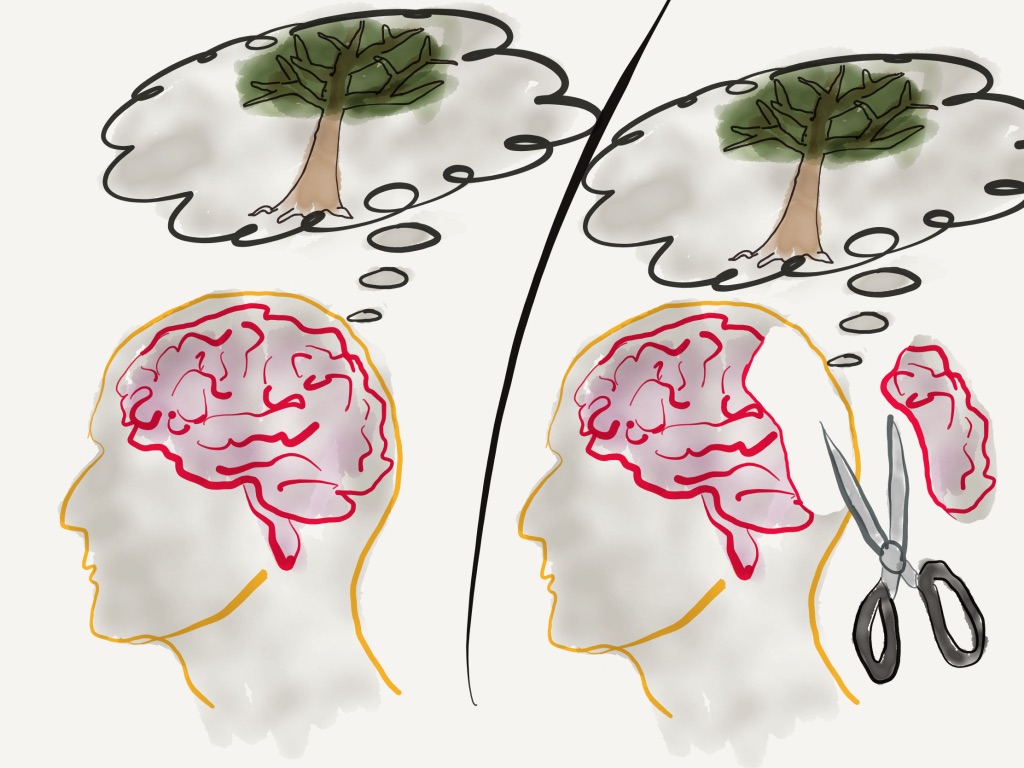Strange Experience, Distilled
As I work on cleaning up and finishing my dissertation, I’m creating ‘distilled’, snack-sized versions of each chapter. I hope this helps me: a) see the ‘big picture’, b) get high-level feedback from more people, and c) entice people to read the real thing.
This post distills “Strange Experience: Why Experience Without Access Makes No Sense”.
Philosophical zombies—beings exactly like us in every physical (and therefore functional) way, but lacking phenomenal consciousness—are designed to test the conceptual link between phenomenal consciousness and functional structure. If we can conceive of beings that duplicate our functional structure without duplicating our phenomenology, that tells us something important: phenomenal truths outstrip mere functional truths. And so the phenomenal cannot be conceptually reduced to the functional.
But zombies only test one direction of entailment: from the functional to the phenomenal. What about phenomenal-to-functional entailment? Even if we can’t read off phenomenal facts from functional facts, we may still be able to read off functional facts from phenomenal facts.
This is where strange experience cases come in.
Strange experience cases mirror zombie cases. Where zombie cases keep the functional facts fixed, and ‘zero out’ the phenomenal facts, strange experience cases keep the phenomenal facts fixed and ‘zero out’ the functional facts. Here’s an example:
- Strange Pain: Imagine that you’re experiencing incredible pain right now: a sharp, piercing pain in your lower back. But there’s something strange about this pain: it’s causally isolated from your other ‘conscious’ mental processes. You’re unable to determine the pain’s location (even though you feel it in your lower back), you can’t describe its qualities (although it feels sharp and piercing), and you’re unable to notice that your back feels any different from how it normally feels (even though your back does feel very different from the way it normally feels). This pain could continue, and you could go about your day as you normally would without it making any difference or distracting you. You could even sit down to read this paper and think, “Wow, what a horrible scenario!”, without realizing that this describes precisely your own situation.
I think this sort of case is inconceivable. If you’re not sure, consider some more extreme cases:
-
Strange experience collection: A subject has more than one strange experience at once. (e.g. strange pain + strange tickle + strange smell.)
-
Strange modality: An entire sensory modality of a subject goes strange. (e.g. All visual experience is causally isolated.)
-
Strange subject: Every phenomenally conscious state of a subject is causally disconnected from each other. (i.e. the exact opposite of a philosophical zombie.)
The key idea behind strange experience cases is this: if phenomenal consciousness were conceptually independent of the functional, we should be able to switch up the functional facts, willy nilly, and any such arrangement of the functional facts should be compatible with any arrangement of the phenomenal facts. But that’s not what we find. Strange experience cases, at a minimum, show that the phenomenal and the functional cannot vary independently in this way. There must be some functional constraint built into the very idea of phenomenal consciousness, such that it rules out strange experience cases.
That functional constraint can take different forms, depending on where and how you draw the line between unproblematic cases and strange experience cases. That is, if strange experience cases ‘zero out’ the functional facts, which functional facts do you need to add back in so that we come back to an unproblematic and conceivable scenario?
I, myself, go in for an access-based constraint. The basic idea is this: When we conceive of any experience, we have to conceive of that experience as belonging to a phenomenal subject. And phenomenal subjects have to bring together various experiences in a causal nexus. And so beings that bring together information in a single place, in a working-memory-like structure, like us, are candidate experience-havers. Jars of mayonnaise, which do no such thing, are not.
For the full story, check out my paper.
Other Dissertation Posts:
For discussion…
